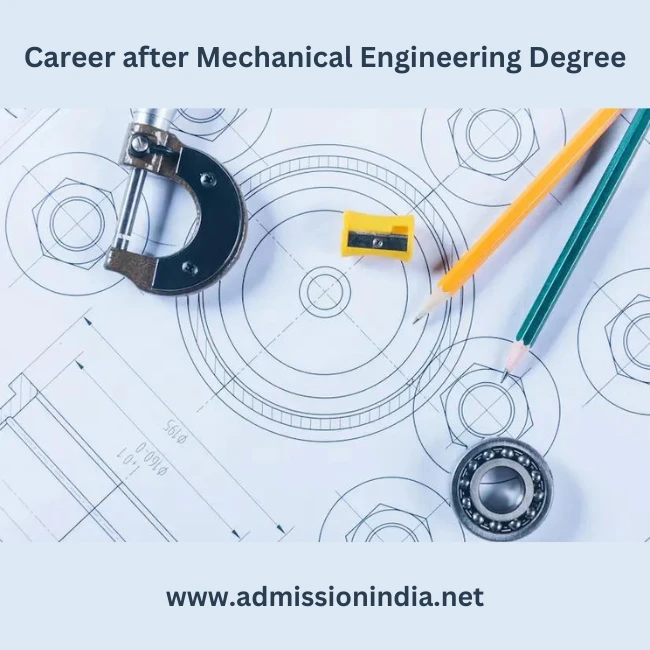

Mechanical Engineering is a popular and rewarding career choice for those who are interested in designing, developing, and maintaining mechanical systems, machines, and tools. It is a diverse field that encompasses many different specialties, including aerospace engineering, automotive engineering, robotics, and manufacturing.
Mechanical engineers are in high demand in various industries such as automotive, aerospace, construction, energy, and manufacturing. They work on the design, testing, and development of a wide range of mechanical systems, products, and devices, from small components to large machines.
Mechanical engineers are also involved in research and development, testing and evaluation, and production and maintenance of mechanical systems. They use advanced tools and techniques, such as computer-aided design (CAD) and computer-aided manufacturing (CAM), to create innovative and efficient products.
The job market for mechanical engineers is expected to grow in the coming years, particularly in industries related to renewable energy, robotics, and nanotechnology. According to the Bureau of Labor Statistics, employment of mechanical engineers is projected to grow 4 percent from 2019 to 2029, about as fast as the average for all occupations.
Mechanical Engineering can be the right choice for a secured career as it offers excellent job prospects, good salary packages, and opportunities for professional growth and development. However, like any other profession, success in this field also requires hard work, dedication, and continuous learning.
Career after Mechanical Engineering Degree
Mechanical Engineering is a very versatile degree that opens up numerous career paths for graduates. Some of the popular career options after a Mechanical Engineering degree include:
Design Engineer:
A design engineer uses their knowledge of mechanics, materials, and manufacturing processes to create and develop new products or improve existing ones.
Production Engineer:
A production engineer is responsible for ensuring that the manufacturing process runs smoothly and efficiently. They work on optimizing the production process, minimizing waste, and maximizing output.
Quality Control Engineer:
A quality control engineer ensures that products meet the required quality standards. They work to identify and correct any defects in the manufacturing process and products.
Research and Development Engineer:
A research and development engineer is responsible for developing new technologies and products. They work on exploring new ideas, developing prototypes, and testing new products.
Project Manager:
A project manager is responsible for overseeing the planning, implementation, and tracking of a specific project. They ensure that projects are completed within the given timeframe and budget.
Sales Engineer:
A sales engineer uses their technical knowledge to sell complex products or services to clients. They work on identifying customer needs, providing technical solutions, and closing sales.
Aerospace Engineer:
Aerospace engineers design and develop aircraft, spacecraft, and satellites. They work on improving the performance and safety of these vehicles.
Energy Engineer:
An energy engineer works on developing and implementing energy-efficient solutions for buildings and facilities. They work on optimizing energy consumption, reducing waste, and improving sustainability.
Overall, Mechanical Engineering provides a wide range of opportunities for graduates to pursue rewarding and challenging careers in various industries.

1 comment. Leave new
Your point of view caught my eye and was very interesting. Thanks. I have a question for you.